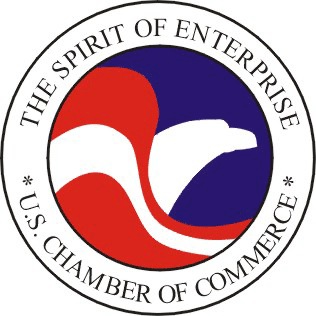I hate dealing with liens when handling a case. In fact, everyone seems to hate them, except of course, the company that wants to reach its hand into a settlement and grab a little something for itself.
And the big reason lawyers hate dealing with liens is an inherent conflict of interest. An injured person hired you, yet you are forced to do the work of someone else trying to capitalize on your work. Almost all of the health care liens, however, were knocked out late last year when New York passed an anti-subrogation law, prohibiting health insurers from trying to scrounge part of the lawsuit proceeds.
In New York’s Workers’ Compensation world , however, — and stay with me here even though you think this might be a boring post — the lien under Workers Compensation Law section 29 is thought to be bulletproof. Which is to say, they get paid back some of the money they spent to the extent it exceeds certain limits.
But I’m not so sure that lien is bulletproof. After a quick, general rundown of how Workers’ Comp works, I’ll explain why there is an avenue to explore for those trying to deal with an oppressive carrier that wants to take virtually all the proceeds of a lawsuit.
This is how it comes up: If Peter Plaintiff gets into an accident in an intersection while making a delivery for his boss, he can’t sue his boss because he’s entitled to Worker’s Comp benefits automatically. Fault for causing the accident is not an issue.
But Peter might sue Danny Defendant, the other car in the accident, because Danny was drunk as a skunk when he blew through that red light. Let’s assume there are big medical bills and lost earnings for Peter, because those are the only times someone might consider this strategy.
Now this is where Workers’ Comp comes in: The insurance carrier exerts a lien on all amounts it pays over $50,000. So if the WC carrier paid out $100,000, it has a claim on $50,000 from the lawsuit.
So let’s say Danny D has a $25,000 insurance policy on his car, which is the minimum here in New York, and that policy gets tendered by his auto insurer because Danny was convicted of DUI and there is now way in hell he’s going to win a civil trial. What does the badly injured Peter get from the 25K? Potentially nothing as the WC carrier swoops in.
Still with me here? Because this is where it gets interesting. The 25K from the insurance policy is first used to pay the lawyer (1/3, because without the lawyer no one is getting anything). That leaves about 16K (depending on expenses). But with a 50K lien, reduced by 1/3 to 34K, Peter Plaintiff might get bupkus.
Please don’t leave…this is where it gets good. And that is because Peter isn’t restricted to going after the 25K policy, and can go after personal assets. It doesn’t happen often, but it is a right he has, and it might happen when the accident is particularly egregious if Danny has some assets.
But the WC carrier is standing there with its hand out. So why should Peter’s lawyer go after the personal assets, if it is the WC carrier that will benefit?
Plaintiff’s counsel has a conflict of interest in trying to maximize recovery, serving two different masters: The client that retained him (Peter) and the WC carrier with its hand out. Why should the lawyer do the work if his client won’t get any money out of it? More importantly, if the lawyer is getting a percent of the whole,and thus the fee is already fixed in a settlement, where is the incentive to fight for Peter for as big a piece of the pie as he’s legally entitled to?
The Court of Appeals discussed a similar conflict last year Fasso v Doerr, regarding the conflict between the injured and health insurers that would like to intervene to take a piece of the recovery. The Court wrote:
[I]ntervention [by an insurer] can create an adversarial posture between a plaintiff/insured and its insurer because neither has an incentive to consider the interests of the other, especially where the potential damages exceed the available sources of recovery. The injured party’s goal is to maximize recovery without regard to whether its insurer recoups any monies it expended for the plaintiff’s medical bills; the insurer’s objective is to reclaim as much of the money it paid as possible regardless of whether its insured has a desire to settle the case rather than proceed to trial.
Now if an attorney’s fee is on the gross lump sum, as is almost always the case in personal injury litigation, that attorney no longer needs to be as concerned with any individual client’s recovery. The attorney will be less motivated to maximize the recovery for any single individual/client so long as s/he maximizes the gross recovery.
For an individual attorney to represent both the personal injury client and the health care provider, therefore, where resolution is contingent upon both parties accepting a single lump sum to be divided/negotiated by that attorney, would appear to be a patent conflict of interests and a violation of the Professional Rules of Conduct (Rule 1.8(g)):
“A lawyer who represents two or more clients shall not make or participate in the making of an aggregate settlement of or against the clients.”
The Plaintiff’s attorney is expected to “sell” the ultimate resolution to his retained client. He also is expected to maintain the illusion that he, the attorney, is solely interested in his retained client’s best interests. But the attorney knows that he will be fully paid his fee from the total settlement regardless how much or little his client recovers.
The Court of Appeals recognized that conflict in Fasso. It is equally obvious that the avoidance of conflicts of interest is one of the primary principles underlying the integrity of the legal system and personal injury law.
New York’s highest court long ago warned that where divided loyalties exist, a lawyer may act detrimentally to the client.
So what is the solution when faced with the lien? The practitioner may wish to consider making a motion to sever the Workers’ Compensation claim from the suit, citing the conflict, as the lawyer can’t work for both masters. The plaintiff can settle the car accident case, and the WC carrier can pursue the personal assets of the negligent driver, standing in the shoes of the plaintiff.
Will it work? I don’t know as there isn’t any law on it yet that I know of. I tried it recently, but the carrier chose to settle rather than litigate. The carrier may have realized that my client had zero downside in going forward, but if a decision came out against it, Worker’s Compensation carriers around the state would suffer enormous repercussions.
And a tip of my hat to J. Michael Hayes in Buffalo, for helping me wrestle with some of these issues last year. He discusses the issues in more depth at his site dealing with Workers Compensation liens.


 I looked in my RSS feed and saw 4,000 unread posts. Yeah, I know that’s a lot. If the blogosphere thinks I fell off the face of the earth because my posts are a bit less frequent lately, I assure you that those in my community know otherwise.
I looked in my RSS feed and saw 4,000 unread posts. Yeah, I know that’s a lot. If the blogosphere thinks I fell off the face of the earth because my posts are a bit less frequent lately, I assure you that those in my community know otherwise.